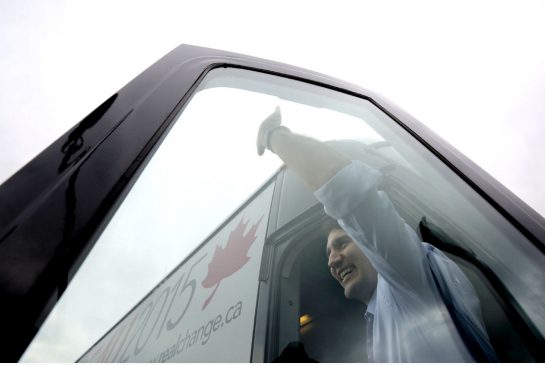Elections are about more than the economy, stupid: Cohn
Six lessons from the last federal election that will change the way future campaigns are fought.

Chris Wattie / Reuters
For all the talk of economic stewardship, Canadians chose an untested Justin Trudeau over a supposedly savvy Stephen Harper.


Post-election post mortems will be conducted and lessons learned.
The way politics played out in the latest federal campaign will change the way politics is played in the next provincial election — and across the country.
Here are six takeaways from the campaign trail:
Nor is it about health care, which consistently tops the polls as a pressing issue but never makes it as a ballot question. The environment may be hugely important, but not on election day (ask the Greens). Never mind the niqab, and forget refugees. Corruption doesn’t count, either.
Party platforms matter, but mostly as proxies for the bigger question of judgment. Voters want to know how leaders respond to a matrix of questions, not a single issue.
Consider the wedge issue of the niqab: NDP Leader Thomas Mulcair’s principled critique of Conservative incitement cost him politically, while Trudeau’s Liberals emerged unscathed despite his similar critique.
That’s because Mulcair argued from the head, while Trudeau argued from the heart. The NDP leader relied on Cartesian logic, while Trudeau made an emotional appeal to our better selves (showing he is not completely his father’s son).
Ultimately, winning over voters is about character — not charisma, nor debating points.
Trudeau promised in the campaign that he’d participate in future debates televised by the national networks, (not just boutique events carried by specialty channels), and his platform calls for an independent commission to organize future encounters. We need to firm up the structure in advance of campaigns.
A more predictable debate structure might also lead to less predictable coverage and commentary by pundits. It’s not about the knock-out punch. Many argued that former PC leader Tim Hudak won the last two provincial debates on points, but he lost the audience with an inauthentic style. Sometimes, seeming simpatico matters as much as making sense.
Believing he had a shot at power, Mulcair renounced deficits to recast himself as a fiscal hawk, while Justin Trudeau’s Liberals made a virtue of deficit financing. Trailing in the campaign homestretch, the NDP’s deathbed pleas for a progressive voice rang hollow: Imagine Mulcair holding the balance of power, demanding that Trudeau rein in his infrastructure investments to balance the budget. That’s a mixed message.
Similarly, Ontario NDP Leader Andrea Horwath tacked right by refusing to support Premier Kathleen Wynne’s proposal for a public pension plan in the last election. Why back New Democrats if they oppose progressive measures? Another mixed-up message.
Whether it’s coming to terms with marijuana, coping with niqabs, or debating when to debate, a successful leader knows how to cut through the haze.
Martin Regg Cohn’s Ontario politics column appears Tuesday, Thursday and Sunday. mcohn@thestar.ca , Twitter: @reggcohn
Top News
- Updated Cancer risk from processed meat ranks with smoking, says WHO
- Updated Women’s College researcher 'manipulated' study results
- TTC 'too full' to attract expected ridership growth
- Bautista's bat flip could breach TPP copyright changes: critics
- John Baird addresses Tory leadership rumours
- All five dead in B.C. whale-watching boat capsize are Britons
- NEW Ex-MP wants ‘new’ dropped from NDP name
- The Animal Scam: Star Touch exclusive


We value respectful and thoughtful discussion. Readers are encouraged to flag comments that fail to meet the standards outlined in our Community Code of Conduct. For further information, including our legal guidelines, please see our full website Terms and Conditions.
Commenting is now closed.
There are -- comments. Show comments.